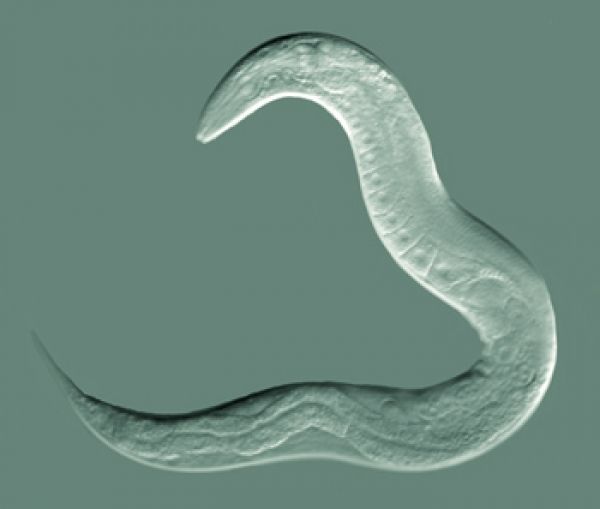The western corn rootworm, one of the world's most damaging maize pests, can use plant defense compounds to defend itself against its own natural enemies, so-called entomopathogenic nematodes. However, the nematodes can become immune against these compounds in turn, which enhances their ability to fight the western corn rootworm, as researchers at the University of Bern show. This mechanism may contribute to improving biological pest control.
The western corn rootworm causes economic losses of over 2 billion US dollars in maize cultivation and is thus a serious agricultural pest. Originally from America, the western corn rootworm is currently invading Europe, including Switzerland.
In an earlier study, Christelle Robert and Matthias Erb from the Institute of plant sciences (IPS) at the University of Bern elucidated one of the strategies that underlies the success of the western corn rootworm. Maize plants store certain defense substances, so-called benzoxazinoids, in their roots. These substances are harmful to many pests. However, the western corn rootworm has developed a strategy to detoxify these substances. The larvae of the corn rootworm thus become resistant against the plant's own defense. Even worse – the larvae store the benzoxazinoids in their bodies and in turn, use them for self-defense against their own enemies, including parasitic roundworms (entomopathogenic nematodes). The fact that the western corn rootworm has found a defense strategy against nematodes is of particular importance, as the nematodes are used as biological control agents against this pest.
Continue reading at University of Bern
Image via Wikimedia, CC0 Creative Commons


